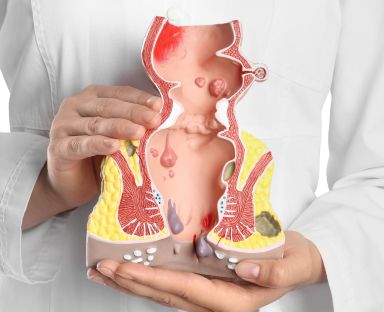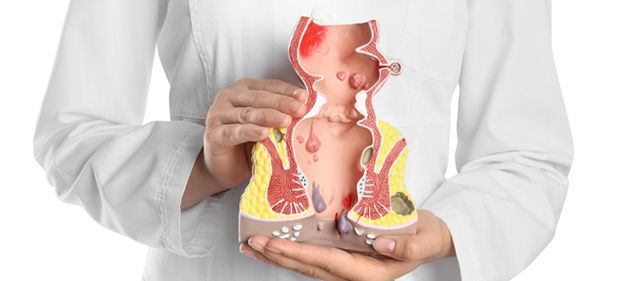
Senior Consultant Colorectal Specialist MBBS (S’pore), MMed (SURGERY), FRCS (Edinburgh), FAMS (S’pore)
- Over 16 Years’ Experience Treating Piles
- Fellow of the Royal College of Surgeons (Edinburgh)
- Pursued Advanced Colorectal Surgery Training in Australia
- Recipient of Multiple Service Quality Awards


It is a condition whereby veins in the anus and rectum have become swollen and inflamed.
This is often caused by excess or chronic pressure, which may be caused by pregnancy, heavy
lifting, chronic constipation, being overweight or obese, and more.

Besides the classic symptoms of feeling a lump around the anal region, and bleeding during bowel movements, the following may also be indicative of piles:
- Pain and itching in or around the anus
- A hard lump near the anus
- Swelling around the anus
- Piles that come out of the anus (prolapse)
The good news is, you may not need surgery. Treatment for piles depends on the symptoms shown and the severity of the issue.
In mild cases of piles, non-surgical treatments may be as simple as:
- Proper dietary and lifestyle changes to reduce constipation
- Oral medications to stop the bleeding of small, bleeding piles
- Topical creams to relieve discomfort around the anus
In moderate cases of piles, your doctor may recommend a rubber band ligation procedure:
- A tiny rubber band will be placed at the base of the prolapsed haemorrhoid
- This causes blood flow to the haemorrhoid to stop, causing it to shrink and fall off
In advanced cases of piles whereby the prolapsed haemorrhoid is perhaps too large for ligation, surgical removal may then be needed:
- This may be done through excising the haemorrhoid with a blade, stapling them back in place, or sealing off their blood supply.
Senior Consultant Colorectal Specialist MBBS (S’pore), MMed (SURGERY), FRCS (Edinburgh), FAMS (S’pore)
Having graduated from the National University of Singapore with a medical degree, Dr Toh went on to become a Fellow of the Royal College of Surgeons (Edinburgh) and pursued advanced training in Australia in laparoscopic colorectal surgery and the treatment of benign colorectal conditions (among others), sponsored by the Ministry of Health. Dr Toh has over 16 years of experience treating piles and other complex colorectal conditions. Her warm and supportive demeanour has earned her many service awards and good patient outcomes over the years.






